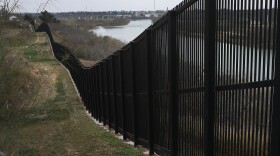-
California's governor and attorney general say the state will challenge President Trump's declaration of a national emergency to fund a southern border wall. They hinted at a multistate lawsuit.
-
When President Trump declared a national emergency on the Southern border on Friday, he claimed the move was routine — even as he acknowledged the administration is likely to face legal challenges.
-
The president invoked emergency powers to free up more money than Congress had allowed in its spending deal. House Democrats are launching an investigation into his decision.
-
By Thursday evening, Congress had easily passed the bipartisan spending deal, which had been crafted by lawmakers from both the chambers. The vote was 83-16 in the Senate and 300-128 in the House.
-
Sen. Richard Shelby, R-Ala., told reporters that he believes Congress can approve the legislation and send it to the president before the Friday night deadline to avert another partial shutdown.
-
President Trump has threatened to declare an emergency to go around Congress and build a border wall. The same law that gives him that power also gives Congress the ability to push back.
-
If an agreement isn't reached by Friday at midnight, the government could partially shut down again, just three weeks after the end of a 35-day partial government shutdown.
-
U.S. service members will install wire barriers and help monitor the border. However, some in Congress have questioned whether it's a good use of active-duty troops.
-
The bill opens the government through Feb. 15 and provides back pay for federal workers who have missed two paychecks during the longest shutdown in U.S. history. Border security talks continue.
-
The proposal would temporarily extend deportation protections for some immigrants in exchange for funding for a border wall. But Democrats say the offer doesn't amount to much.
© 2025 WOSU Public Media
Play Live Radio
Next Up:
0:00
0:00
Available On Air Stations










